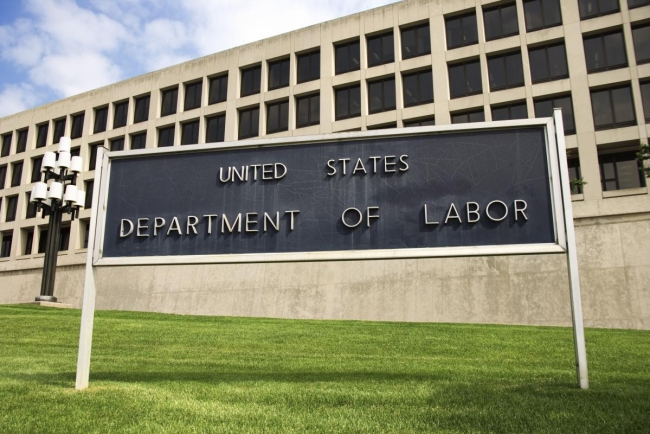You have /5 articles left.
Sign up for a free account or log in.

The Department of Labor plans to update wage minimums for overtime-exempt employees.
Thinkstock/Getty Images
A plan by the Department of Labor to increase the salary threshold for overtime-exempt workers has higher education associations worried about the effect it could have on college budgets.
The department plans to update overtime regulations to “ensure that middle class jobs pay middle class wages, extending important overtime pay protections to millions of workers and raising their pay,” according to a 2021 statement. That means raising the salary minimums for workers who are exempt from overtime pay under the Fair Labor Standards Act.
The forthcoming proposal is creating tension in higher education. While more than a dozen higher education professional associations have expressed concerns about the budget impact, some faculty and staff members are frustrated that the associations are not advocating more strongly for wage increases for college and university employees who are overworked, burned out and leaving the field.
“Food insecurity and housing insecurity are issues that higher education professionals face—especially entry-level professionals in student affairs,” said Brittany Williams, an assistant professor of higher education at St. Cloud State University. “And so to read that they would not support a rule that would put more money in the pockets of those practitioners and support them with having healthier work-life balance felt a little off-tone.”
The College and University Professional Association for Human Resources, alongside 14 other higher education associations, co-signed a letter to the Department of Labor last month, asking the department to talk with higher education officials before raising the salary threshold to “ensure application of the white-collar exemptions in a manner that protects employees and workplace fairness, while also ensuring the exemptions function as intended.”
The associations—including the Association of American Universities, the American Association of Community Colleges, the National Association of Independent Colleges and Universities, and the Association of Public and Land-grant Universities—expressed unease about another hike to the minimum salary for overtime-exempt employees. The most recent increase, from $23,660 to $35,568, took effect in January 2020. Colleges and universities will need time to come up with the funding for compensation changes and for managers to implement them, and a threshold bump that’s too big could result in budget cuts, leading to job losses, according to the letter.
“Hourly employment and associated employer obligations to track employees [sic] work time may not be consistent with certain remote work and independent control over schedules,” the associations wrote. “As a result, changes to the minimum salary threshold or other [executive, administrative and professional] requirements that will result in large scale reclassification of workers from exempt to nonexempt may make remote work and certain flexibility with schedules extremely cumbersome, if not impossible, to manage.”
Steven Bloom, assistant vice president of government relations at the American Council on Education, said the associations don’t oppose raising the threshold but request that any changes be phased in and that the minimum for exempt workers be set at a reasonable level.
The Department of Labor will hold several listening sessions this spring about the proposed rule making, including one for higher education, Bloom said.
“If you’re going to have increased costs, you have to be able to budget for it,” Bloom said. “So we recommended to the Department of Labor that they provide a runway for us so that we could implement it in a way that wasn’t terribly disruptive. I don’t think it’s fair to say that we oppose an increase in the threshold. We didn’t, and we won’t this time.”
While the associations haven’t flat out opposed a threshold increase, they have argued against proposed minimums in the past. In 2015 and 2016, the Obama administration issued a rule to increase the salary minimum for overtime-exempt workers to $47,476—doubling the existing minimum at the time. Though the rule never took effect—a judge issued an injunction on its implementation, and the Trump administration later withdrew it—CUPA-HR and other associations took issue with the new minimum. According to CUPA-HR survey data, the new rule would have cost institutions $115 million to implement in the first year, and survey respondents said that “such an expense could trigger tuition hikes and reductions in workforce and services.”
Some higher education professionals were disheartened by the associations’ letter. While budgetary concerns are important, the letter sent the wrong message to employees, said Kevin McClure, an associate professor of higher education at the University of North Carolina at Wilmington.
“Many of the people who work in higher education have been under incredible pressures and have been putting in amazing amounts of work and have felt—even prior to the pandemic—that they were undervalued and undercompensated,” McClure said. “As we’re having conversations about many people re-evaluating their future in the field, I think it comes across as perhaps a little bit tone-deaf and a perfect illustration of why folks are leaving.”
The associations represent 4,300 two- and four-year public and private nonprofit colleges and universities, which employ approximately 3.9 million workers, the letter noted. However, McClure said, the associations most often represent the leadership at those institutions rather than rank-and-file faculty and staff members.
Williams, of St. Cloud State, said that higher education institutions should take fair wages and stable employment more seriously, and instead of presenting a dichotomy between plentiful jobs and high wages, institutions should look to other parts of the budget to fund employee salaries.
She said she was thinking of "the salaries in athletics. I’m thinking of salaries of upper administration and leaders who happen to make much more than the folks that they serve with and the folks who are serving under them to make the work that they’re doing possible.”
In a column for Forbes, education policy expert Edward Conroy argued that opposing efforts to raise wages for higher education workers will hurt morale and students.
“Senior administrators and the associations that represent them are about to make things worse for their front-line employees by lobbying against a Biden administration proposal to increase wage minimums for college staff who don’t qualify for overtime pay,” Conroy wrote. “If successful, students who are struggling to figure out their financial aid and determine what classes they need to graduate will suffer.”
There’s still plenty of time before the Department of Labor will release details on its proposal to raise the salary threshold, and conversations about the idea will likely continue until then.
“We can hear the train off in the distance, but it’s still quite a ways away,” Bloom said. “We will just have to wait and see.”




